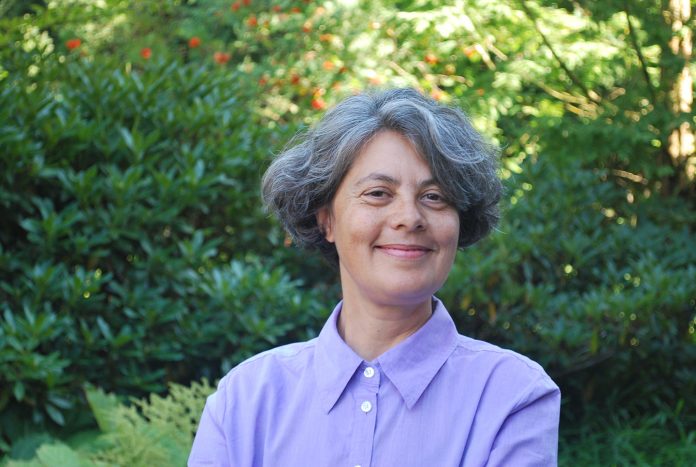When I asked UFV’s dean of arts about her time growing up in South Africa, Jacqueline Nolte paused briefly before answering, “Difficult. A little like being in a bad science fiction novel. I’m South African, I fought for many years against the apartheid regime, and my life in South Africa was split between being an academic and working in the underground for the African National Congress.”
It’s an experience that has shaped her career. Nolte said she is “deeply committed to the education of citizens who will take their role of citizenship responsibly, and ask questions about how they can contribute to a more just society. And I also take our educational mandate very seriously because access to education was denied in South Africa to a majority of the population and this was a privilege for an elite few.”
But just what does our dean of arts do? “A large part of our responsibility in this office is to be accountable to students with regards to the quality of education they receive. The core of that is curriculum content and delivery,” Nolte explained. “What I’m doing is I’m ensuring that curriculum committees [which exist to evaluate course content] take place, and that they link into college of arts council discussions and that these discussions all follow the policies that we’ve drafted in relation to accountability.”
The dean of arts also plays a role in who the university hires. “I have conversations with department heads about who those hires might be and how to frame a search for someone, and potentially combine areas of teaching, not only within an area but across disciplinary areas,” Nolte said. “A lot of what I’m doing is trying to promote interdisciplinary conversation and [encourage] interdisciplinary collaboration.”
Although these decisions might seem far-removed from the everyday realities of being a student, it’s those concerns that are at the forefront of Nolte’s work at the university. Tangible changes in the horizon include changes to programs, such as the bachelor of arts. “The redesign of the new B.A. will allow students to articulate what they’ve learned in the course of their studies in a more coherent manner when they go out and try to find work or create work for themselves,” she said. “We’re doing the same with the bachelor of general studies. Many … years of work went into the re-design.”
Changes to program structure have already been rolled out, and more will follow in the coming months and years, according to Nolte. “We’re offering a theatre major and a peace and conflict studies major as of Winter,” she said. One of the newest additions to the bachelor of arts program might see UFV students concerned with social issues thinking of changing major. “As of next September we’ll be offering the indigenous studies major and minor, which will [fall under] the B.A, and also the new media and arts degree. So within those programs there are quite a few new courses,” Nolte explained.
As we wrapped up, I asked Nolte about the role of the College of Arts within the creative community here at UFV. “You’ve got student associations who are supported through the student services side of the hub, and to a certain extent through my operating budget through the heads [of programs] in terms of student opportunities,” she said. But student involvement, Nolte assured me, is always critical to the conversation happening within the university. “I think there’s a lot more we could do in terms of student suggestions as to what the agenda items might be to help make this a space that’s interesting enough for them to be in, so we could certainly do more of that with the College of Arts Council agenda.”


